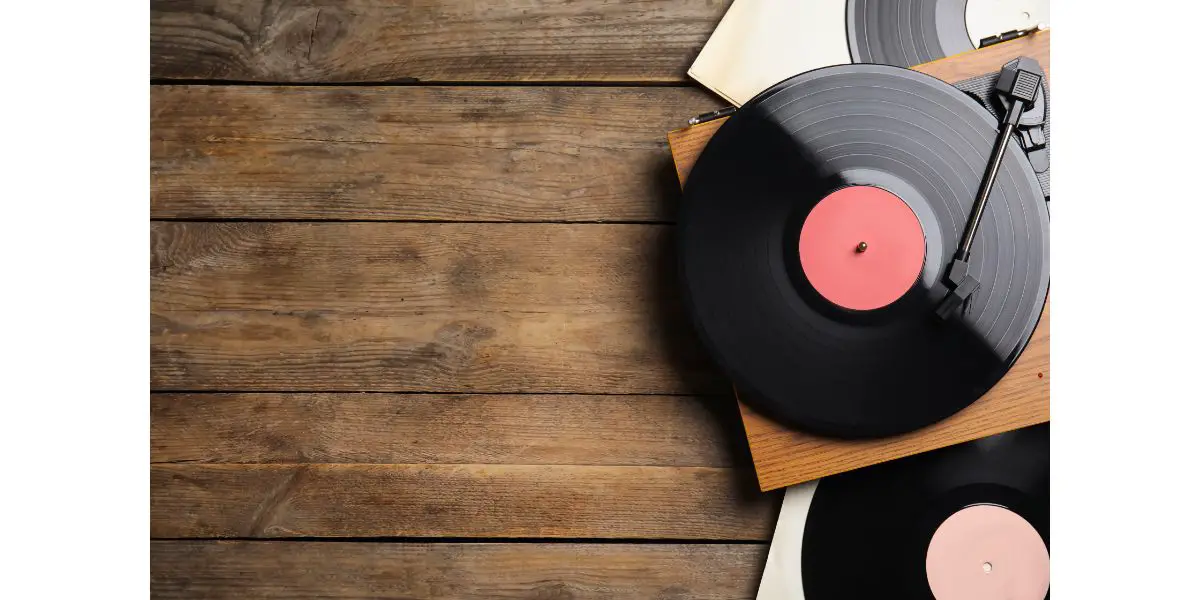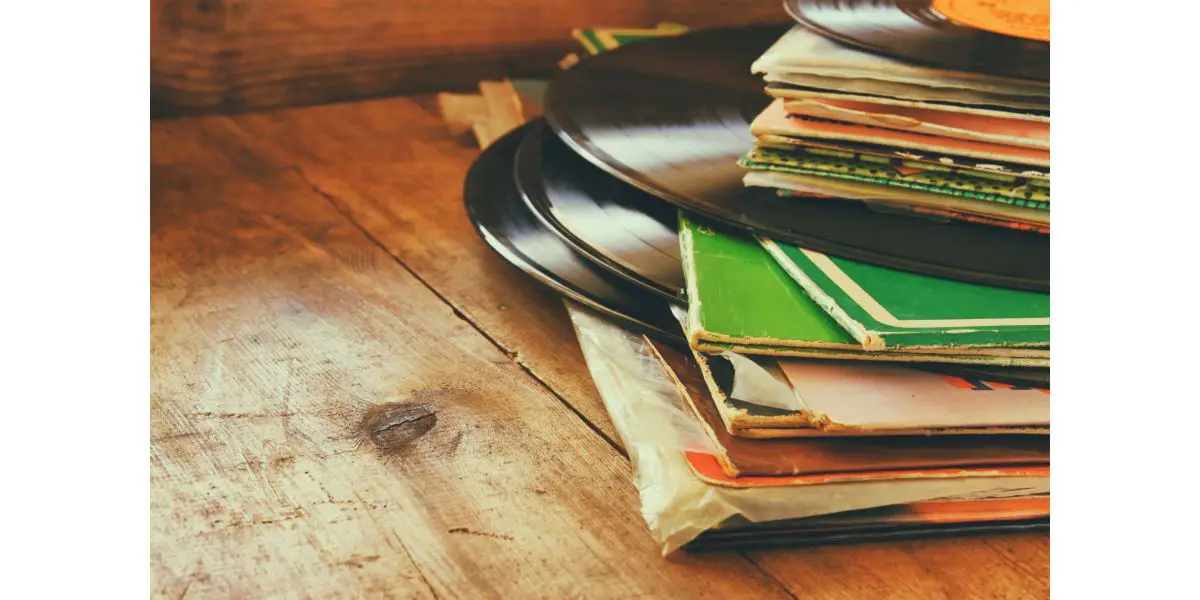Disclaimer: This post may contain affiliate links, meaning we get a small commission if you make a purchase through our links, at no cost to you. For more information, please visit our Disclaimer Page.
Vinyl records were the primary medium of recording music many years back. As audio technology progressed, music storage options became smaller and more portable.
They can also hold more songs and have better quality than their predecessors. In recent years, however, old storage modes have made a comeback. And vinyl records are at the forefront.
Some audiophiles appreciate the distinctive sound quality of a good vinyl record. Others collect limited edition records or those with unique sleeves.
Some artists have taken advantage of this newfound popularity. Thus, they began to offer digital downloads along with the purchase of any record.
Whatever the case, more people wonder about the care of records like these. Warping can be a major concern, and we will discuss some factors that relate to it here.
Table of Contents
Is It Normal for Records To Be Warped?
Vinyl records warp over time, particularly if their owners do not care for or store them. There are a few major factors that can influence this process. We will go over them in greater detail in a later section of our post.
But, very old records may have nicks and scratches when you get them. That said, vinyl records don’t come with an expiration date from the manufacturer. In theory, your records could last a lifetime if you care for or store them.
High temperatures are the biggest problem for audio storage in this medium. We’ll get into the specifics of proper record temperature ranges in our section on causes.
What Are the Causes of a Record Warping?
It can be difficult for us to determine how normal it is for a record to have distortions. To find out, we’ll talk about brand new records that you can buy right off the shelf or from the manufacturer.
While we’re not sure how normal for a record to twist out of shape under these circumstances, it is not uncommon. Many vinyl aficionados say they notice slight imperfections in their products.
There are a few reasons for this issue, but time is probably the most important factor here. The various processes a record goes through during manufacturing also affects them. We will cover some of the most important aspects of this problem here.
1. Excessive Heat
Heat is one of the primary things that can affect the shape of a record. But note that most production floors are very hot already.
And factories in hotter climates will have even more issues with heat. Keeping new pressings in their proper shapes is challenging as they come off the line.
The storage temperature can warp the compounds in the vinyl. Similarly, a hot vinyl record exposed to the open air for more than a few seconds can also mar the record.
2. Cooling Time
When a company makes a batch of new records, they need to cool off before they sleeve and package them for shipping. If a record doesn’t have enough time to cool off naturally, it can start to warp.
Cooling a record helps the material to stiffen and resist warping in the future. Smaller records are more susceptible to the negative impacts of poor cooling time.
3. Poor Resting Methods
Some manufacturers will place cooling plates between 10 or more records on a spindle. Cooling plates are important for keeping the temperatures down. Yet too many records can cause some warping.
This pressure is not something records handle with ease. Prolonged exposure to it can negatively affect how they form once you get them.
3 Causes After Manufacturing and Distribution
In this section, we can discuss some of the major factors that can alter the appearance of a record after you get it. While these are not the only things that can damage a record, you must look out for these issues.
1. Heat
Heat is the primary cause of warping in a record. It becomes soft when the record has too much exposure to high temperatures. It makes them susceptible to bending and twisting.
A vinyl record starts to soften at 140℉. This would be about 60℃ for readers using a different scale.
Warping due to heat is not the only thing that can happen to a record. If this temperature level increases beyond this level, your vinyl may start to melt. It can happen if the temperature reaches around 212℉ or 100℃.
Under such temperature, the compounds in the record break down and lose their structural integrity. While you might be able to play some warped records, melted records are much harder to enjoy or restore.
2. Direct Sunlight
This factor may tie back to heat somehow, but it still deserves its category. Sunlight can add some secondary effects to the record’s deterioration. Most notably, it causes fading of the album covers.
If your records are in direct sunlight, the bright or vibrant sleeve colors start to fade. Over time, they become yellowish.
3. Pressure
Excessive force can warp a record out of alignment. This may be more of an issue for thinner records rather than thicker ones. Records from different eras have either thinner or thicker designs.
It takes more pressure to bend a thicker record. But it is still not advisable to store any record where pressure pushes on it constantly.
How Do You Fix Warped Records? 3 Fixes
If you have records that are a bit distorted already, you might restore them to their original shape. You may need a combination of methods to do this. You might need to use some things that are not good for a record in the first place.
- Pressure – This is an easy method and the longest — you will need to wait a few days. Cover the whole surface of the record with thick glass panes on both sides.
- Heat – Put the record between a pair of heavy glass plates. Heat these plates in the oven and sandwich the records between them until they cool down.
- Machine – There’s a professional equipment to help you flatten warped records. However, they are rare and, if you find them, overpriced.
Can You Still Play Warped Records?
Yes, you can still play a record that has a warp in it. But, how well it plays can depend on the severity of said warp. If the defect in the record is only minor, the turntable might be able to play the record.
You may notice that the record raises and lowers a bit as it goes around on the turntable. This should be okay if there is no audible distortion of the music.
If the distortion is severe, the turntable might not play the record. The needle may not track the grooves in the record. If the player cannot do this, you won’t get any sound from the record.
How Can You Prevent Records From Warping in the Future?
Proper care and storage of your records are the best ways to ensure they don’t warp later. To help you along, you can look at the major causes of warping in records that we’ve gone over already.
Keep your collection away from excessive heat, direct sunlight, or heavy pressures. Remember, these suggestions to keep your records in pristine condition.
Conclusion
Records are a great way to experience your favorite music. With their resurgence in recent years, there is also a vibrant community of which you can be a part.
Although this medium produces a great sound, it is susceptible to warping. Thankfully, there are ways to guard your vinyl collection against this issue.
If you encounter warped records, try some of our fixes above. If all else fail, there are professionals in the industry who can help you restore your records.


